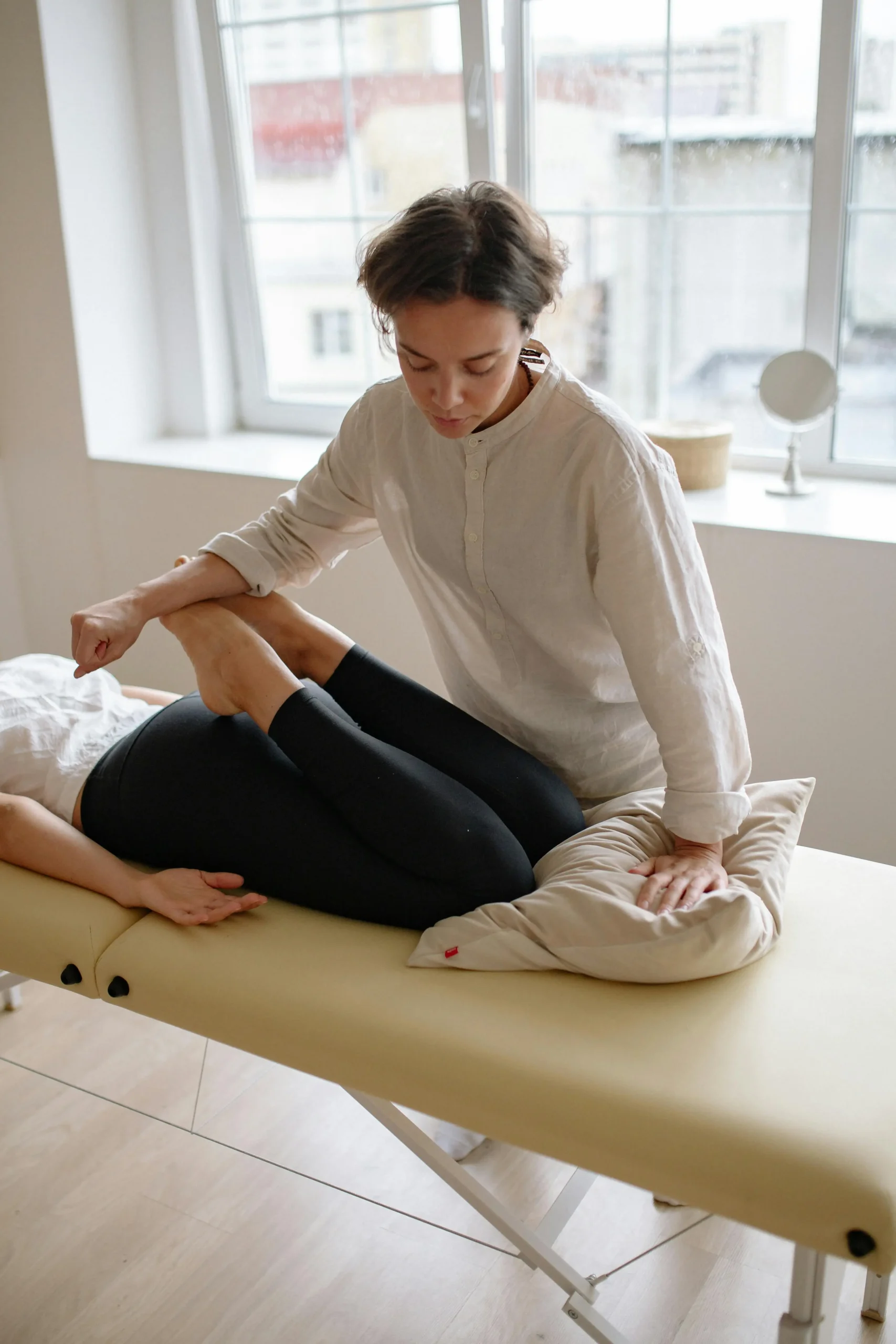Introduction
In today’s fast-paced world, women often face unique challenges that can lead to chronic stress. From juggling work and family responsibilities to navigating societal expectations, the pressures on women can take a toll on their physical and mental health. This article explores effective stress management techniques specifically designed for women, empowering them to reclaim their well-being and thrive in their personal and professional lives.
Understanding Stress in Women
Stress is a common response to challenging situations, but women often experience it differently than men. Factors such as hormonal fluctuations, societal expectations, and caregiving responsibilities can contribute to higher levels of stress in women. The long-term effects of chronic stress can be significant, including anxiety, depression, sleep disturbances, and weakened immune systems.
The Need for Effective Stress Management
It’s crucial for women to find healthy ways to manage stress and maintain their overall well-being. This article will delve into practical and evidence-based techniques that can help women reduce stress levels, improve their mental and physical health, and enhance their quality of life.
Join us as we explore a range of effective stress management strategies, including:
- Mindfulness and meditation
- Physical activity
- Healthy eating
- Prioritizing sleep
- Building social connections
- Time management techniques
- Creative outlets
By incorporating these techniques into their daily lives, women can take control of their stress levels and live happier, healthier lives.
Mindfulness and Meditation
Mindfulness and meditation techniques have gained significant popularity for their ability to reduce stress and promote relaxation. These practices involve focusing the mind on the present moment, without judgment. Regular practice can lead to numerous benefits, including:
- Reduced stress and anxiety: Mindfulness helps to calm the mind and reduce the body’s stress response.
- Improved focus and concentration: Regular meditation can enhance attention span and cognitive function.
- Enhanced emotional regulation: Mindfulness can help individuals better manage their emotions and respond to stress in a healthier way.
- Improved sleep quality: Mindfulness techniques can promote relaxation and help individuals fall asleep more easily.
How to practice mindfulness and meditation:
- Find a quiet space: Choose a peaceful environment where you won’t be disturbed.
- Comfortable posture: Sit or lie down in a comfortable position.
- Focus on your breath: Pay attention to the sensation of your breath as it enters and leaves your body.
- Bring your attention to the present moment: Observe your thoughts and feelings without judgment.
- Gentle return to your breath: If your mind wanders, gently bring it back to your breath.
Physical Activity
Regular physical activity is essential for overall health and well-being, including stress management. Exercise helps to release endorphins, natural mood boosters that can reduce stress and anxiety. Additionally, it can improve sleep quality, boost energy levels, and enhance self-esteem.
Recommended physical activities for stress relief:
- Yoga: Combines physical postures, breathing exercises, and meditation.
- Pilates: Focuses on core strength, flexibility, and posture.
- Walking: A simple yet effective way to reduce stress and clear your mind.
- Swimming: A low-impact exercise that can help relieve muscle tension and improve mood.
- Dancing: A fun and energetic way to release stress and boost endorphins.
Tips for incorporating physical activity into your routine:
- Set realistic goals: Start with small, achievable goals and gradually increase the intensity and duration of your workouts.
- Find activities you enjoy: Choose activities that you find fun and motivating.
- Make it a social activity: Exercise with friends or family to make it more enjoyable.
- Listen to your body: Don’t push yourself too hard, especially when you’re feeling stressed.
Healthy Eating
A balanced diet plays a crucial role in managing stress. Nutrient-rich foods can help regulate mood, improve energy levels, and support overall well-being.
Key nutrients for stress relief:
- Omega-3 fatty acids: Found in fatty fish, flaxseeds, and walnuts, omega-3 fatty acids can help reduce inflammation and improve mood.
- Vitamin B: Essential for energy production and brain function, vitamin B deficiencies can contribute to stress and anxiety.
- Magnesium: A mineral that helps regulate neurotransmitters and muscle function, magnesium deficiency can lead to anxiety and insomnia.
Tips for healthy eating:
- Eat regular meals: Avoid skipping meals to prevent blood sugar fluctuations and mood swings.
- Limit processed foods: Choose whole, unprocessed foods as much as possible.
- Stay hydrated: Drink plenty of water throughout the day.
- Mindful eating: Pay attention to your body’s hunger and fullness cues.
Prioritizing Sleep
Adequate sleep is essential for both physical and mental health. When we’re sleep-deprived, we’re more susceptible to stress, anxiety, and irritability.
Tips for improving sleep quality:
- Establish a regular sleep schedule: Go to bed and wake up at the same time each day.
- Create a relaxing bedtime routine: Wind down before bed with activities like reading or taking a warm bath.
- Optimize your sleep environment: Ensure your bedroom is dark, quiet, and cool.
- Limit screen time before bed: The blue light emitted by electronic devices can interfere with sleep.
- Manage stress during the day: Effective stress management techniques can help you fall asleep more easily.
Building Social Connections
Strong social connections are essential for mental and emotional well-being. Spending time with loved ones can help reduce stress, improve mood, and provide support during challenging times.
Tips for building strong social connections:
- Spend quality time with loved ones: Make time for face-to-face interactions with friends and family.
- Join social groups: Participate in activities and hobbies that allow you to meet new people.
- Volunteer: Giving back to the community can be a rewarding way to connect with others.
- Practice active listening: Pay attention to others and show genuine interest in their lives.
Time Management Techniques
Effective time management can help reduce stress by preventing feelings of overwhelm and burnout.
Time management techniques:
- Prioritizing tasks: Identify important tasks and focus on completing them first.
- Time blocking: Allocate specific time blocks for different tasks.
- Setting realistic goals: Break down large tasks into smaller, manageable steps.
- Avoiding multitasking: Focus on one task at a time to improve productivity and reduce stress.
- Learning to say no: Don’t overcommit yourself.
- Taking breaks: Schedule short breaks throughout the day to rest and recharge.
Creative Outlets
Engaging in creative activities can be a therapeutic way to relieve stress and boost mood.
Creative outlets for stress relief:
- Painting and drawing: Express your emotions through art.
- Writing: Journaling can help you process your thoughts and feelings.
- Music: Playing an instrument or listening to music can be calming and uplifting.
- Gardening: Connecting with nature can reduce stress and anxiety.
By incorporating these stress management techniques into your daily life, you can take control of your well-being and lead a more fulfilling life. Remember, it’s important to find what works best for you and to be patient with yourself.
Conclusion
In today’s fast-paced world, stress has become a pervasive issue, particularly for women. By understanding the unique stressors faced by women and implementing effective stress management techniques, it is possible to reduce anxiety, improve mental and physical health, and enhance overall well-being. By prioritizing mindfulness, physical activity, healthy eating, sleep, social connections, time management, and creative outlets, women can empower themselves to lead healthier, happier, and more balanced lives. Remember, self-care is not selfish; it’s essential for your well-being.









